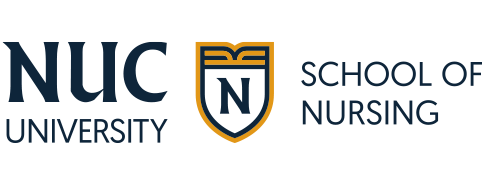Opportunities for nursing career advancement often depend heavily on the educational qualifications that a nurse earns. As you consider a career in nursing, you will want to understand the differences between an Associate of Science in Nursing degree (ASN) degree, and a Bachelor of Science in Nursing degree (BSN).
Ultimately, the degree program that you select may have an impact on your nursing job satisfaction and work-life balance in nursing, so understanding the difference between these degrees can help you select the path forward that is right for you.
Understanding the ASN and BSN Pathways
Two of the most common academic pathways for aspiring nurses are the Associate of Science in Nursing degree and the Bachelor of Science in Nursing degree. Commonly referred to as the ASN and BSN degrees, these undergraduate degree programs are both designed to provide students with foundational knowledge about the nursing profession and the healthcare field, all while giving them the opportunity to hone clinical skills necessary in any nursing role.
According to the American Nurses Association, this is what you need to know about these two educational pathways:
What Is an ASN Degree?
An ASN degree is an undergraduate degree program typically completed within two years, though the time to graduate may vary based on the pace that you decide for your program. The ASN degree prepares nurses for licensure as a registered nurse, though it is more limited in scope than the bachelor’s degree program. Typically, graduates with an ASN degree go on to pursue entry-level positions in nursing, but they may find that there are fewer nursing career advancement opportunities or opportunities for specialization in nursing.
One of the most significant advantages of the ASN degree is that it allows nurses to enter the workforce, yet the credits earned may be transferred to a BSN degree program. Many ASN-prepared nurses go on to pursue advanced nursing degrees in hopes of elevating their careers.
What Is a BSN Degree?
A BSN degree is an undergraduate degree program that typically takes students about four years to complete, though the actual time to graduate may vary based on the pace that you decide for your program. Similar to the ASN program, the BSN degree prepares students for licensure as a registered nurse, but this program offers a more comprehensive curriculum that can equip students with the skills required to pursue specializations in nursing. The ANA notes that many hospitals and healthcare facilities require prospective candidates to have a BSN degree, making this a valuable investment in your career.
Comparing Flexibility in Career Paths for ASN and BSN Graduates
Understanding the career options for BSN nurses versus ASN nurses can help you determine which educational pathway to pursue. Both degree programs offer some degree of career flexibility, but ultimately, you will want to evaluate your career goals and decide which degree program best aligns with your vision for your nursing career.
Entry-Level Roles in Different Healthcare Settings
The American Nurses Association states that there is a significant nursing shortage that has reached crisis levels, with recent findings from the American Hospital Association revealing that more than 100,000 nurses have left the profession since the onset of the COVID-19 pandemic. As a result, nurses who graduate with an ASN or BSN degree will find that they can easily access entry-level positions in a variety of healthcare settings, including hospitals, clinics, physicians’ offices, schools, and more.
Specialization Opportunities
Within the nursing field, there are many opportunities for specialization, allowing nurses to blend their personal passions into their professional careers. The following contains some of the top specializations in nursing:
- Emergency nursing
- Oncology nursing
- Telehealth nursing
- Pediatric nursing
- Neonatal intensive care nursing
- Critical care nursing
It’s worth noting that most specialized positions in nursing require either a BSN degree or advanced nursing degrees, highlighting the importance of investing in your education to enjoy further career flexibility.
Work Environment Flexibility for ASN and BSN Graduates
One of the most common misconceptions about the nursing profession is that nurses are limited to working in a hospital. In reality, nurses are employed by a variety of organizations, allowing them to enjoy flexibility throughout their careers.
Common work environments for nurses include:
Hospital and Clinical Settings
The BLS notes that 58 percent of nurses work in hospitals and another 19 percent work in ambulatory services, which may include physicians’ offices, outpatient care centers, home healthcare settings, and more. The vast majority of nurses will work in hospital and clinical settings, particularly if they are interested in providing direct care to patients. Both ASN-prepared and BSN-prepared nurses will be able to pursue nursing positions in hospitals and other clinical settings.
Community-Based Nursing Roles
Community-based nursing roles allow nurses to rely on their healthcare experience and medical expertise to advocate for improved services for specific patient populations. Common job responsibilities in public health nursing roles include:
- Advocating for and organizing community health initiatives designed for specific patient populations.
- Providing patients in the community with assessments and evaluations.
- Connecting patients in the community with the resources they need to access high-quality healthcare services.
- Developing health education campaigns to promote healthy lifestyle choices in the community.
- Offering health screenings and vaccinations to specific patient populations.
Non-Traditional Nursing Settings
When you picture your career as a nurse, you might imagine yourself at a patient’s bedside in a hospital room. However, you may be surprised to find out that ASN-prepared and BSN-prepared nurses can pursue work in non-traditional settings, such as:
- Occupational health nursing clinics
- Schools
- Law firms
- Pharmacies
- Healthcare data analysis firms
Most recently, technological advancements have actually allowed nurses to pursue remote work opportunities. Telehealth nursing is becoming more common with each passing day, providing nurses with an opportunity to pursue the job they love from the comforts of home.
Advantages of Career Flexibility for ASN and BSN Nurses
Career flexibility for ASN and BSN nurses is crucial to preventing nurse burnout, which is defined by the American Nurses Association as a serious job-related condition that results in mental fatigue, physical exhaustion, and negative morale. Moreover, nurse burnout can lead to costly mistakes in clinical settings, compromising the health and safety of patients.
By choosing a degree program that allows you to prioritize flexibility and achieve work-life balance in nursing, you will be able to prevent burnout and enjoy a higher sense of job satisfaction.
Work-Life Balance and Shift Options
Maintaining a sense of work-life balance as a nurse is crucial, so you will want to consider your shift options as you are pursuing entry-level positions in nursing.
These are the shift options available to nurses:
- 12-hour shifts, which are common in hospital settings.
- 10-hour shifts, which are common in hospital settings.
- 8-hour shifts, which are more common in office settings.
Opportunities for Career Growth and Advancement
Even after you have earned your degree, you can continue to invest in your education and professional development to pursue opportunities for career growth and advancement. Certification programs, advanced nursing degrees, and simulated training courses allow you to advance your nursing skills and pursue higher-level positions in nursing.
How to Choose the Right Nursing Pathway for Your Career Goals
Knowing that there is career flexibility with both an ASN and BSN degree, you will want to consider your personal goals before deciding which nursing program to pursue.
You can choose the right nursing pathway by:
Assessing Your Interests and Strengths
At the end of the day, your profession is personal. You will want to select a nursing degree program that aligns with your personal interests and clinical strengths, allowing you to succeed both academically and professionally. Not to mention, when you select a degree program that complements your personal strengths, you will find your educational journey to be much more rewarding.
Considering Long-Term Career Goals
Your education is an investment in yourself and in your future career. It’s important to identify your long-term career goals before deciding on a degree program so that you can make the best possible investment. For example, if you want to become an advanced practice registered nurse, you may benefit from a BSN degree program that prepares you to pursue advanced nursing degrees. If you plan to work directly with patients and want to begin your career as soon as possible, then an ASN program may be right for you.
Learn More About Nursing Career Advancement Opportunities at Florida Technical College
Earning a nursing degree is the first step toward launching your career in healthcare. At Florida Technical College, we offer an Associate of Science in Nursing degree program as well as a Bachelor of Science in Nursing degree program, allowing students to choose the educational pathway that best aligns with their personal strengths, academic interests, and career goals. Our nursing programs provide students with an opportunity to develop their nursing skills in both clinical and simulated environments, ultimately giving them the ability to prepare for a tech-driven career in nursing.
Request more information about our nursing programs today.
These examples are intended to serve only as a general guide of possible employment opportunities. There are many factors that determine the job an individual may obtain and Florida Technical College cannot guarantee its graduates any particular job. Some positions may require license or other certifications. We encourage you to research the requirements for the particular position you desire.
Sources
https://ftccollege.edu/program/bachelors-degree/science-nursing/
https://ftccollege.edu/program/diploma/associate-of-science-in-nursing/
https://ftccollege.edu/program/nursing-programs/
https://www.nursingworld.org/content-hub/resources/becoming-a-nurse/nursing-career-pathways/
https://www.nursingworld.org/content-hub/resources/becoming-a-nurse/adn-vs-bsn/
https://nursing.jnj.com/specialty
https://www.bls.gov/ooh/healthcare/registered-nurses.htm#tab-3
https://nursejournal.org/articles/top-community-health-nursing-jobs/
https://nursejournal.org/articles/non-hospital-jobs-for-nurses/
https://www.nursingworld.org/content-hub/resources/workplace/nurse-schedules-12-hour-shifts/




